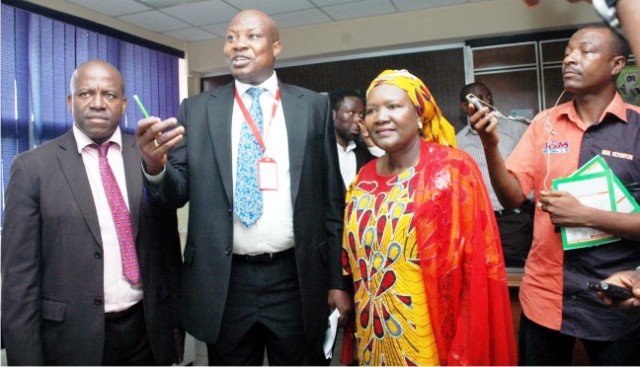Business
Nigeria’s Recession: Pilgrims Board Optimistic Of Rebound

A Muslim faithful and former Secretary, Muslim Pilgrims Welfare Board, Rivers State, Alhaji Ahmed Owanate Sanipe, has expressed optimism that the current bad economy in the country would soon bounce back to its former glory.
Snipe made the assertion while speaking with journalists on the sideline of this years. Eid-el kabir celebration held at their state EID praying ground at 208 Niger Street, Port Harcourt, Monday.
According to him, the God of yesterday, today and forever will surely turn-around the fortunes of Nigeria from its present predicaments with obedience to God Almighty and fervent prayers for God to salvage the situation.
He opined that the high level of insecurity in the Niger Delta due to misconception had brought a lot of difficulty in the country, and advised them to seek God’s intervention in order for them to stop destroying the nation’s economy.
Sanipe, who was a one-time Secretary to Degema Local Government Council in Rivers State, however admitted that although the Niger Delta region was under-developed, but there is a way of and International forum, and not to destroy the oil pipelines and pollute the environment which had also affected the people of the area healthwise, adding that they should rather go for dialogue to settle their issues.
On operation Crocodile smile in the Niger Delta, he noted that it is justified because the Federal Government and the military cannot fold their arms and see their heritage destroyed because it is their duty to protect lives and property of its citizenry, and reiterated that the economic recession would soon be a thing of the past.
Transport
Automated Points Concession : FAAN Workers Gave 72hrs To Revise Decisions In PH

Transport
FAAN Announces Pick-Up Points for Go-Cashless Cards

Business
Fidelity Bank To Empower Women With Sustainable Entrepreneurship Skills, HAP2.0
-

 Politics3 days ago
Politics3 days agoSenate Urges Tinubu To Sack CAC Boss
-

 News3 days ago
News3 days agoAmend Constitution To Accommodate State Police, Tinubu Tells Senators
-

 News3 days ago
News3 days agoDisu Takes Over As New IGP …Declares Total War On Corruption, Impunity
-
Business4 days ago
Crisis Response: EU-project Delivers New Vet. Clinic To Katsina Govt.
-
Business4 days ago
President Tinubu Extends Raw Shea Nuts Export Ban To 2027
-
Business4 days ago
President Tinubu Approves Extension Ban On Raw Shea Nut Export
-
Sports3 days ago
NDG: Rivers Coach Appeal To NDDC In Talent Discovery
-
Business4 days ago
Fidelity Bank To Empower Women With Sustainable Entrepreneurship Skills, HAP2.0

